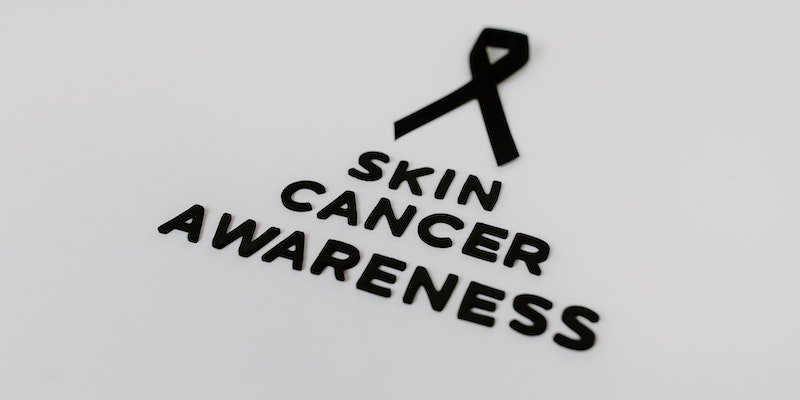Erectile Dysfunction: Causes and Implications
Oct 01, 2023
Erectile Dysfunction (ED), a condition that once lived in hushed tones and silent whispers, has now become a focal point of medical discourse and public awareness. It isn't just a condition but a reflection of complex bodily mechanisms intertwined with psychological nuances. What is it? How do we treat erectile dysfunction? What causes it? This article unpacks erectile dysfunction, explores its causes, and suggests therapy alternatives.
Erectile Dysfunction
Erectile dysfunction is the inability to get or keep an erection for sexual performance. Discussing as a 'phase' or ' mind over matter' issue is no longer taboo but an actual, controllable health issue.
How erections happen is critical to understanding ED. The process involves neurological, vascular, and psychological events. The brain tells the spinal cord to pump blood into the penis muscles. This blood flow raises pressure, causing an erection. Erectile dysfunction can result from physical or psychological disruptions.
Causes of ED

Erectile dysfunction is complicated, involving physical and psychological variables. These categories overlap, creating a complex picture of erectile dysfunction causes. Going deeper into these causes will provide a more precise understanding and pave the way for targeted erectile dysfunction treatment.
Physical Causes of Erectile Dysfunction
1. Vascular Conditions
Vascular conditions play a pivotal role in erectile dysfunction. The heart's efficacy in pumping blood is integral to achieving an erection. This ability can be significantly impaired by diseases like atherosclerosis, which builds up plaque in the arteries. Also, hypertension causes artery walls to lose flexibility, reducing blood flow. ED can also result from excessive cholesterol deposits in arteries, reducing penile blood flow.
2. Endocrine Disorders
Endocrine disorders, particularly diabetes, are significant contributors to erectile dysfunction. Diabetes affects the body's ability to utilize insulin, impacting blood flow and hormone levels, both critical for erectile function. Poorly managed blood sugar levels can damage the nerves and blood vessels over time, impairing the body's ability to facilitate an erection.
3. Neurological Disorders
The nervous system's role in achieving an erection is undeniable. Parkinson's disease, multiple sclerosis, and stroke can impair brain-reproductive communication. The loss of this crucial communication can inhibit the necessary signals required for initiating an erection, thereby causing ED.
4. Medications & Substance Abuse
Emerging concerns include how drugs and substance addiction affect erectile function. Some antidepressants and opioids increase ED risk. Alcohol and tobacco addiction can damage arteries and nerves, worsening erectile dysfunction.
5. Lifestyle Factors
Lifestyle plays an undeniable role in overall health, including sexual health. Vascular disease and diabetes, which cause ED, can result from obesity. Poor nutrition and exercise can also influence hormones and blood flow. Erectile dysfunction risk increases with sedentary lifestyles and processed food consumption.
Psychological Causes
1. Stress & Anxiety
The mind-body connection is powerful; prolonged stress and anxiety can significantly impact sexual function. The pressure to perform sexually can become a self-fulfilling prophecy, leading to performance anxiety and ED. Chronic stress also affects hormonal balance and vascular function, exacerbating the issue.
2. Depression
Depression is a pervasive condition that affects both the mind and body. It can lead to disruptions in physiological functions, including erections. The multifaceted nature of depression, coupled with the side effects of some antidepressant medications, makes it a notable contributor to erectile dysfunction.
3. Relationship Issues
The emotional component of a relationship is crucial for sexual satisfaction. Discord, lack of emotional intimacy, and unresolved conflicts can contribute to ED. Performance anxiety from emotional hardship can strain the relationship and worsen erectile dysfunction.
Diagnostics: Erectile Dysfunction Test
Diagnoses are essential to understanding and treating any ailment. An erectile dysfunction test isn't a singular entity but a series of evaluations and discussions:
- Physical Examination: A thorough examination can reveal signs of underlying health issues causing or contributing to ED.
- Blood Tests: These can identify signs of diabetes, heart disease, low testosterone, and other health concerns.
- Urine Tests: Like blood tests, urine tests can reveal underlying health issues.
- Ultrasound: This test can evaluate blood flow to the penis, identifying vascular issues.
- Psychological Examination: A mental health exam can reveal depression, stress, or anxiety.
Treatment Options: A Holistic View
Once the causes are identified, the roadmap to erectile dysfunction treatment becomes clearer. The treatments range from lifestyle changes and medication to surgical interventions, forming a comprehensive and individualized approach.
Lifestyle Changes & Psychological Counseling
Addressing lifestyle factors is a fundamental aspect of erectile dysfunction treatment. Exercise, nutrition, stopping smoking, and drinking less improve erectile function. Counseling lowers stress, depression, and anxiety, improving well-being.
Medication
PDE-5 drugs like Viagra, Cialis, and Levitra cure erectile dysfunction first. They increase nitric oxide, which relaxes penile muscles, increases blood flow, and enhances erections.
Hormone Therapy
Low testosterone can be treated with hormone therapy. Not all ED is testosterone-related. Thus, it's not a universal treatment.
Vacuum Erection Devices
These devices create a vacuum around the penis, encouraging blood flow and leading to an erection. They can be effective but might not be suitable for everyone.
Penile Implants
For those where other treatments have failed, penile implants offer a permanent solution. The procedure involves surgically placing devices into both sides of the penis.
Vascular Surgery
In specific cases, vascular surgery can rectify blood flow issues to the penis, although it's unsuitable for everyone.
Understanding the Psychological Element

Addressing the psychological aspect is paramount. Relationship counseling can help resolve conflicts and communication issues, while individual therapy can work on stress, anxiety, and depression. Psychological intervention can often complement medical treatment, forming a holistic approach to managing ED.
The Stigma Around ED
The societal perspective on ED is evolving. The stigmatization that once shrouded the condition slowly dissipates, replaced by understanding and support. Encouraging open dialogue, fostering understanding, and promoting awareness are crucial elements in demystifying ED.
Supportive Communities and Resources
Numerous resources and communities aim to support individuals dealing with ED. From online forums to dedicated organizations, the collective goal is to provide information, guidance, and a safe space for discussion. These platforms can be invaluable for those seeking advice or simply a sense of understanding and solidarity.
Conclusion
Erectile dysfunction is a multifaceted condition with various causes and treatment options. Understanding and managing ED begins with acknowledging the issue, seeking help, and undergoing an erectile dysfunction test. A combination of lifestyle changes, medication, therapy, and, in some cases, surgery can address the condition effectively.





